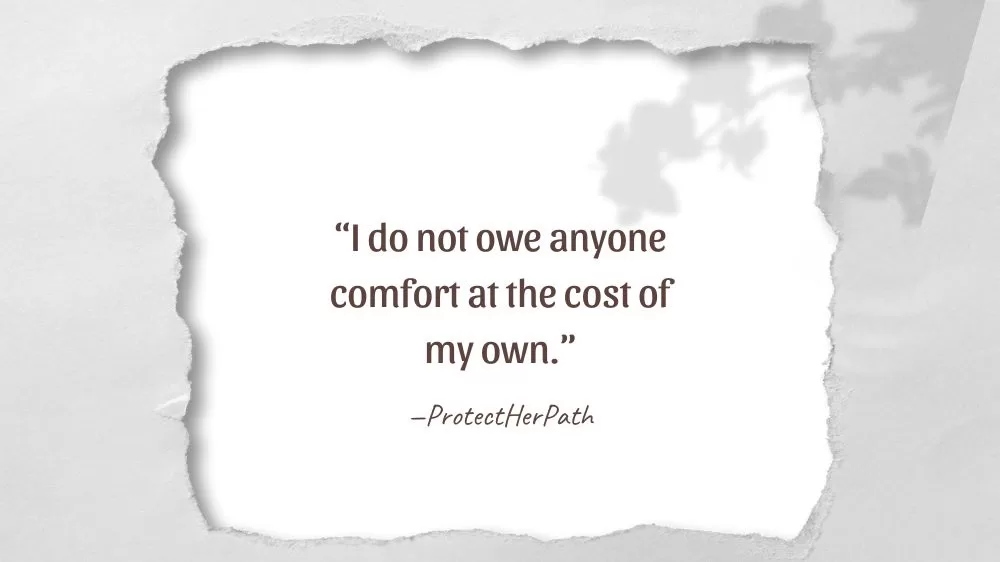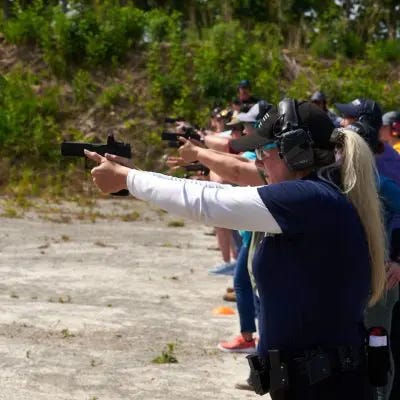Safety Over Politeness: When Being ‘Nice’ Could Put You at Risk

The Role of Trust in Self-Defense: Reclaiming Your Right to Choose Safety Over Politeness and Say No
From a young age, parents, teachers, and society teach many women to be polite, accommodating, and agreeable. Phrases such as, “Don’t make a scene,” “Be nice,” and “Don’t be rude” are ingrained in our upbringing. While these lessons are often well-meaning, they can leave us vulnerable when our safety is at stake. Choosing safety over politeness is essential because predators know how to exploit these social norms, using them as tools to manipulate and control.
In self-defense, understanding the role of trust and knowing when to break it, is essential to protecting yourself. This article explores how societal pressures around trust and politeness can conflict with personal safety and how you can reclaim your right to prioritize safety over politeness, free of guilt.
How Trust Becomes a Vulnerability
Trust is a cornerstone of human interaction, enabling us to build relationships and navigate the world with confidence. However, choosing safety over politeness is crucial, as predators often exploit trust in several key ways:
- Manipulating Social Norms Predators often rely on the fear of being impolite or rude to keep their targets compliant. For example, someone might invade your personal space or persistently ask invasive questions, knowing that many women hesitate to push back for fear of appearing mean.
- Creating a False Sense of Security Predators may pretend to be helpful or friendly, such as offering to carry your groceries or fix your car. By appearing trustworthy, they lower your defenses.
- Leveraging Authority Individuals posing as figures of authority (e.g., police officers, security guards) can exploit trust in institutions to gain compliance. Without questioning their legitimacy, you may feel obligated to follow their instructions.
- Exploiting Guilt and Obligation Predators know that many women are socialized to prioritize others’ feelings over their own safety. They may use phrases like, “I just need a minute of your time,” or act offended if you decline their requests, banking on your discomfort to get what they want.
Reclaiming Your Right to Say No
To embrace safety over politeness, it’s essential to unlearn the conditioning that equates politeness with goodness. Here’s how you can start:
1. Trust Your Instincts
Your intuition is a powerful tool. If something feels off, it probably is. Do not second-guess yourself or wait for confirmation. Acting on your gut feeling can save you precious seconds in a dangerous situation.
2. Set Boundaries Early and Firmly
Practice saying “no” in everyday situations to build confidence. If someone makes you uncomfortable, be direct and unapologetic. For example:
- “I’m not interested.”
- “Please step back; you’re in my personal space.”
- “I’ve got it covered, thank you.”
It is okay to be perceived as rude if it means protecting yourself. Odds are, you will never see that person again. Even if you were wrong about their intentions, what matters most is that you stayed aware and safe.
I’ll share a personal experience: I once pulled into a gas station and noticed a man standing on the side of the building. I intentionally parked at a pump on the opposite side. As I was getting out of my car, I saw that same man walking toward me. He started talking but was not making much sense, mumbling something about thinking I was his mother. The situation made me uncomfortable. I stood firm, keeping my car door between us, and responded loudly and abruptly, “I am not who you think I am.” And maybe a couple of other things. He eventually walked away.
Afterward, I felt a twinge of guilt for being rude, but I reminded myself that he had invaded my space and made me uncomfortable. In the end, my safety was what mattered most.

3. Redefine Politeness
Choosing safety over politeness means recognizing that you don’t have to sacrifice your well-being to be polite. You don’t owe anyone your attention, especially if it makes you uncomfortable. For example, when walking or running outdoors, you’re not obligated to say hello or even make eye contact with strangers. It’s not rude, it’s prioritizing your safety.
4. Test Trust Gradually
Trust is earned, not given. Therefore, avoid sharing personal information or letting someone into your space until you’ve had time to assess their intentions.
5. Learn to Handle Guilt
Guilt is a common tactic predators use to manipulate. Remember that it’s okay to prioritize your safety over someone else’s feelings. A polite “no” does not make you a bad person.

Practical Scenarios Where Trust Is Tested
Scenario 1: The Pushy Stranger
You’re at a coffee shop, and someone sits uncomfortably close, engaging you in conversation despite your disinterest.
- Action: Politely excuse yourself and move to another spot. Inform a staff member or call attention to the behavior.
Scenario 2: The Helpful Bystander
Your car breaks down, and someone offers to help. They seem nice, but you’re unsure.
- Action: Thank them and let them know you’ve already called someone to assist. Keep your car locked and stay on the phone with a trusted person until help arrives.
Scenario 3: The Fake Authority
Someone claiming to be an officer asks you to get in their car without presenting clear identification.
- Action: Request to see their badge and ID. If you’re still uncertain, call the local police station to verify their identity before complying.
Why Prioritizing Yourself Is Empowering
Learning to say no and assert boundaries is essential for choosing safety over politeness. In fact, it’s not just about avoiding danger; it’s also about reclaiming your confidence and agency. Furthermore, every time you trust your instincts and prioritize your safety, you are affirming that your well-being comes first.
Predators thrive on compliance and hesitation. Therefore, by breaking free from societal pressures to trust blindly or be overly accommodating, you take a major step toward protecting yourself and walking your path boldly. Remember, trust is a gift, not an obligation; so, use it wisely.

Stay connected with us on Facebook and Instagram for more self-defense tips, safety insights, and empowering content tailored to help women walk their path with confidence. Let’s keep the conversation going. Join us today!






[…] Trust Your GutMy instincts told me something was wrong when I noticed his nervous behavior. But like many of us, I hesitated to act on those feelings. Your gut is one of your most powerful tools; listen to it. […]
[…] On an ordinary morning in October, what began as a peaceful visit to Tarleton Park in Alexandria, Virginia, became a harrowing escape from an attempted abduction. The unsettling experience has left the community on high alert and ignited conversations about public safety, situational awareness, and listening to your gut instincts. […]